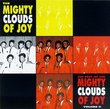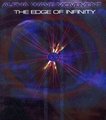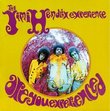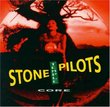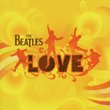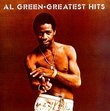| All Artists: Crazy Horse Title: Crazy Horse Members Wishing: 4 Total Copies: 0 Label: Reprise Records Original Release Date: 1/1/1971 Re-Release Date: 3/22/1994 Genres: Country, Folk, International Music, Pop, Rock, Classic Rock, Metal Styles: North America, Singer-Songwriters, Vocal Pop, Folk Rock, Country Rock, Psychedelic Rock, Album-Oriented Rock (AOR) Number of Discs: 1 SwapaCD Credits: 1 UPC: 075992680820 |
Search - Crazy Horse :: Crazy Horse
 | Crazy Horse Crazy Horse Genres: Country, Folk, International Music, Pop, Rock, Classic Rock, Metal
No Description Available. Genre: Popular Music Media Format: Compact Disk Rating: Release Date: 22-MAR-1994 |
Larger Image |
CD DetailsSynopsis
Product Description No Description Available. Genre: Popular Music Media Format: Compact Disk Rating: Release Date: 22-MAR-1994 Similar CDsSimilarly Requested CDs
|
CD ReviewsDegrees of separation John Stodder | livin' just enough | 05/22/2003 (5 out of 5 stars) "This hard-rocking little gem features a supergroup of sidemen working at a high level of skill and passion. Crazy Horse is Neil Young's backup group--the original group, which was comprised of Danny Whitten on guitar, Billy Talbot on bass, and Ralph Molina on drums. For this album, however, they added three significant ringers: Nils Lofgren, who had played on Neil's "After the Goldrush" album, and would eventually have a solo career before joining Bruce Springsteen's E Street Band; Ry Cooder, the famed slide guitarist who played with the Rolling Stones, John Hiatt, Randy Newman, Ravi Shanker and the Buena Vista Social Club; and Jack Nitzche, who (among other things) was an arranger for Phil Spector, had his own hit in the early 60s with the lushly orchestrated "Lonely Surfer," and helped Neil Young assemble two of his greatest Buffalo Springfield tunes, "Broken Arrow" and "Expecting to Fly." Shortly after this album came out, Danny Whitten died of a drug/alcohol reaction--one of the two premature deaths documented on Young's "Tonight's the Night." The degrees of separation, ranging from the early 60s girl groups to "The Rising," span much of U.S. rock and roll history--which all seems to come together in one place, on this unassuming little album full of deceptively simple, great tunes. It opens with a churning version of an obscure Randy Newman song, "Gone Dead Train," that sturdily rocks you toward the one Neil Young cover, "Dance Dance Dance," a countrified song that features the fiddler Byron Berline. The first of several Whitten originals, "Look at All the Things," establishes his primary mode--simple tales of heartache. I can't figure out why I like his songwriting so much. It's simple stuff, but it holds up, and works well in a rock band context. "Look at All the Things," for example, has a very cool vocal arrangement that has a Mozart-like echoing effect. After a Nils Lofgen tune, the psychedelic "Beggars Day," another Whitten song appears, the classic "I Don't Want to Talk About it." This tune, played here with Cooder's slide guitar accompanying the lovely little acoustic rhythm figure, is vivid and emotionally delicate. As you may recognize, this is the original version of a tune that Rod Stewart covered some years later with much success. Crazy Horse's version, however, is better. It's followed by "Downtown," a song that appears to be about scoring drugs. In what was meant to be an ominous gesture, Young put a version of the same song on "Tonight's the Night." But on this album, it sounds like an anthem of joy: "Come on baby let's go downtown, let's go let's go let's go downtown/ Come on baby, let me turn you around now, turn you turn you turn you around!" Of the remaining songs, "Carolay" is a highlight--the connection with Phil Spector made explicitly with the urgent piano opening that sounds like a flipped-over version of "Doo Doo Ron Ron." I also love the bluesy "Crow Jane Lady," the one song written and performed by Nitzche--a weird but enjoyable finale. At the time he died, Whitten was mourned more as a tragic life cut short by substance abuse, and not so much as an artist of consequence whose work would be missed. This album was in my collection as an LP back then, mostly because I was a Neil Young fan. I liked it a lot, but when I converted to CDs, it never occured to me it would be re-released. But here it is, it's really great, it's rock history that also packs a very enjoyable punch. And, with the passage of time, you realize that the world is indeed a poorer place for the loss of Danny Whitten, the songwriter who gave us "I Don't Want to Talk About it," "Downtown" and "Carolay." As the years since then have shown, there is nothing easy about writing a great rock song." Danny Whitten's swan song, fabulous rock'n'roll G. Wallace | Hilliard, OH USA | 05/26/2000 (5 out of 5 stars) "Danny Whitten overdosed in 1972, shortly after failing to be sober enough to tour with Neil Young. The loss of Whitten almost certainly put Young in the darkness for several years. What a loss! This album boasts four outstanding Whitten compositions and several more strong vocals. The effect of the record is somewhere between late sixties Rolling Stones and the most disturbed sixties Neil Young. This may be due in part to the presence of Stones session man and Buffalo Springfield producer Jack Nitzsche on piano (and production). In addition to the Horse and Nitzsche there are two fabulous young guitar players, Nils Lofgren and Ry Cooder. Not to be missed and very comparable to Neil Young's contemporary offering 'After the Goldrush'." Oh! What Possibilities Might Have Been! Thomas M. Blumenthal | Greater Philadelphia, PA | 02/17/2000 (5 out of 5 stars) "Really about 4 1/2 stars, but I would rather risk over-rating than under-rating this by even a bit. Great little album by Neil Young's backing group. Really essential too, not only for Neil fans but early 70's fans. Nils Lofgren, Neil's piano man on "Southern Man" is here in the mix too as the fifth member, but not always properly credited as so. Lofgren's version of "Beggar's Day" is superior here to remake on solo years later, so you Nils fans also should have a look into this. People who love Robbie Robertson & The Band, some Grateful Dead fans who fell in love with them first and foremostly for a pair of albums in the year 1970 likely also find this Crazy Horse album of country/folk/rock appealing. Yes, indeedy, a tasty, tasty offering eschewing the goody-goodiness of the likes of Poco or CSN. Closer to hippy life in the country than any of them; dark shadows as well as good times; deeper without being weighted down. Good times and hard times, "A drunkard's dream" if ever to be believed, get your hog heaven right here, those of you who know what I'm getting at. Moments of exhilarating fun, moments to give pause. "I Don't Want To Talk About It", a Danny Whitten song here later covered by Rod The Mod, intrigingly worth a listen in its authoritative version as well, especially in the retrospective light of the subsequent tragedy of his short life."
|

 Track Listings (11) - Disc #1
Track Listings (11) - Disc #1